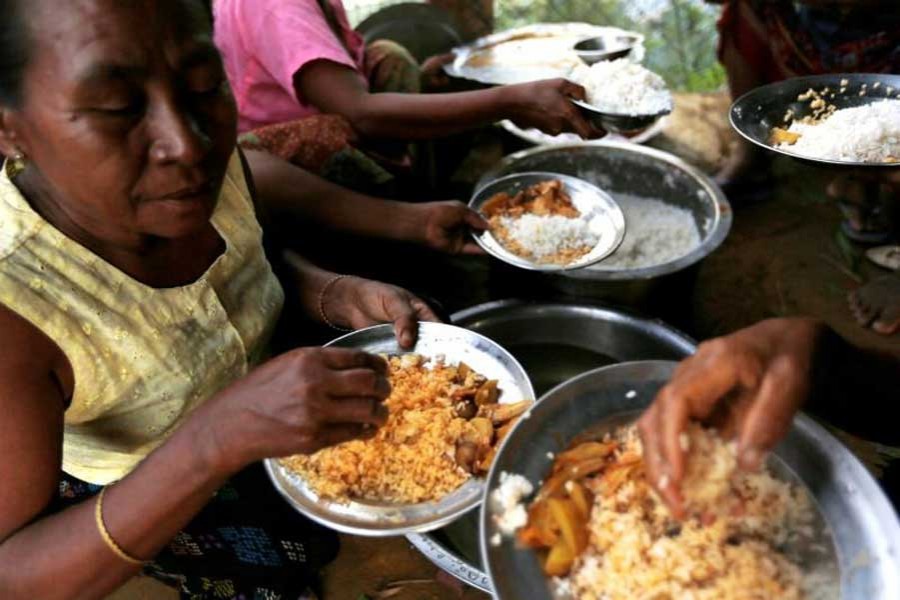Myanmar authorities have agreed to allow the United Nations to resume distribution of food in northern Rakhine state which was suspended for two months, the World Food programme (WFP) said on Friday, reports Reuters.
The agreement, whose details are still being worked out, came as UNICEF reported that Rohingya refugee children fleeing into Bangladesh were arriving "close to death" from malnutrition.
The WFP was previously distributing food rations to 110,000 people in northern Rakhine state - to both Buddhist and the minority Muslim Rohingya communities.
Rohingya insurgent attacks on police stations triggered an army crackdown that the United Nations has called "ethnic cleansing", and UN humanitarian agencies have not been able to access northern Rakhine to deliver aid since then. WFP deliveries have continued to 140,000 people in central Rakhine.
"WFP has been given the green light to resume food assistance operations in northern part of Rakhine. We are working with the government to coordinate the details," WFP spokeswoman Bettina Luescher told journalists in Geneva.
She had no timeline or details on the proposed distribution of rations to northern Rakhine, and said it was still being discussed with the authorities in Myanmar.
"We just have to see what the situation on the ground is. It's very hard to say these things if you can't get in," Luescher said.
Some 604,000 Rohingya refugees have fled to Bangladesh in the past two months, bringing the total to 817,000, the International Organisation for Migration or IOM said.
Malnutrition rates in Maungdaw and Buthidaung townships in Rakhine, where the vast majority of the Rohingya refugees originate, were already above emergency threshold rates before the crisis, the UN Children's Fund, UNICEF said.
"Since August 25, we have had to stop treating 4,000 children with severe acute malnutrition in northern Rakhine because we have had no access," UNICEF spokeswoman Marixie Mercado told the briefing.
UNICEF has screened nearly 60,000 Rohingya refugee children arriving in Bangladesh, nearly 2,000 of whom have been identified as having severe acute malnutrition, with another 7,000 moderately acutely malnourished, she said.
The agency screened 340 children among recent arrivals, a "rough and rapid exercise" that found 10 per cent to be severely acutely malnourished, she said.
"This is an extremely small number of children so these numbers are not representative," Mercado said.
"But what they do tell us is that some of the children are close to death by the time they make it across the border."


